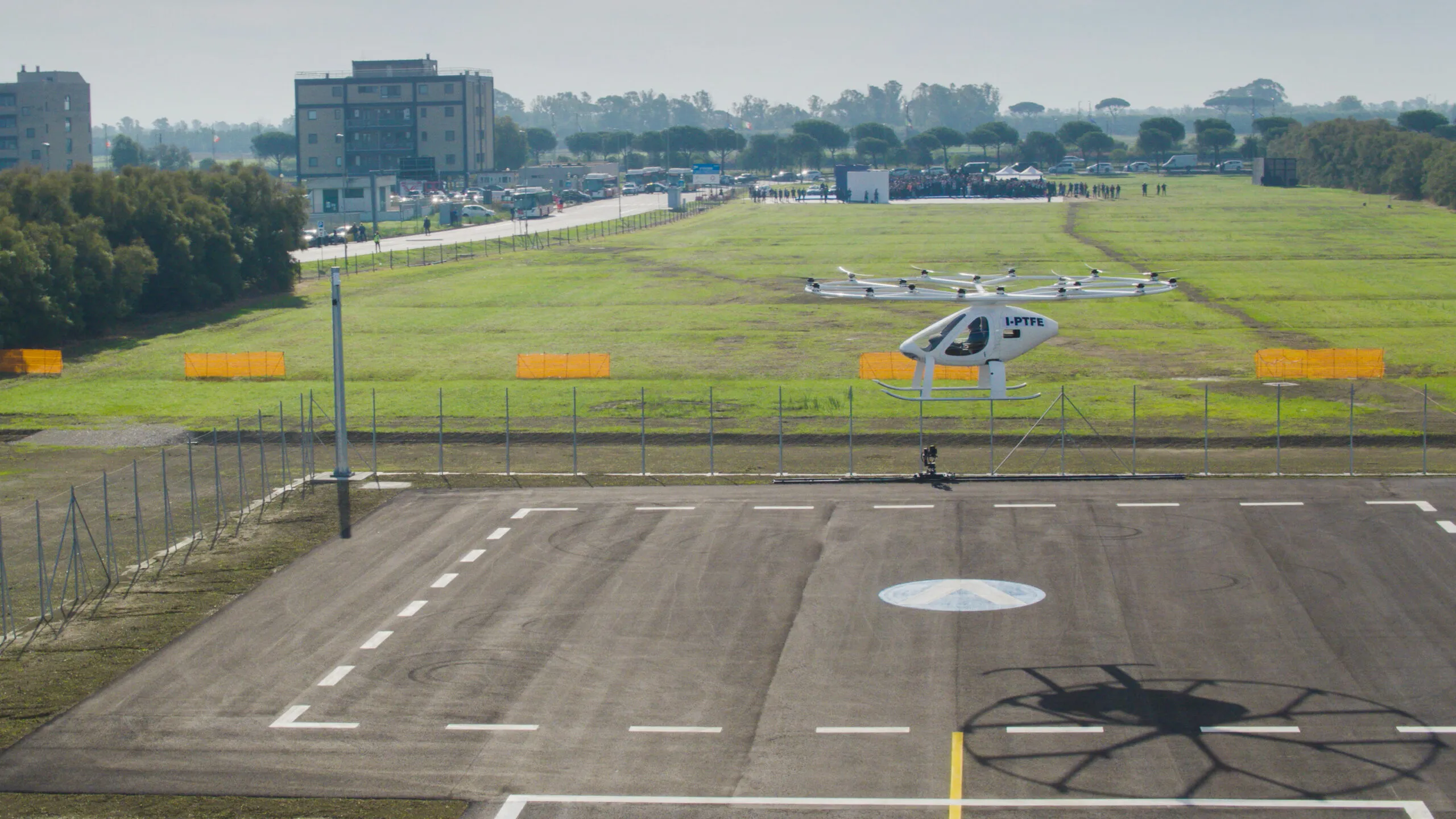
Volocopter says it has successfully completed the first crewed electric vertical take-off and landing (eVTOL) test flights in Italian airspace.
Working with Aeroporti di Roma, Atlantia and UrbanV, and leaving from Rome's Leonardo da Vinci International Airport, the flight was designed to illustrate how advanced air mobility services around Rome - due to be functional by 2024 - will work.
The piloted electric Volocopter 2X air taxi flew 40 km/h for five minutes at a height of 40m in the latest test.
The air taxi will initially will be able to carry two people - one of whom will be the pilot, although Volocopter envisages the craft being autonomous eventually - can travel at a maximum speed of 110kmh and has a range of 35km.
The latest test comes a year after the first eVTOL prototype was showcased in Italy by the urban air mobility (UAM) specialist.
Volocopter says the vertiport is designed to host various types of tests for both flight and ground operations (such as turnaround and battery charging), with an electric system devised to allow testing of various eVTOL charging technologies (e.g. battery swaps, fast charging).
The vertiport infrastructure takes up about 5,500m2 and "has been sized to ensure compatibility with the main eVTOLs that will be certified in the coming years", says Volocopter.
It consists of a final approach and take-off area, parking, a covered hangar, a warehouse and an area for battery charging.
Volocopter also showed off its VoloIQ digital platform, which the company says can be used for "flight operations to booking and beyond".
Studies by the European Union Aviation Safety Agency and the McKinsey Center for Future Mobility estimate UAM in Europe – including R&D, vehicle manufacturing, operations, and infrastructure construction – will be worth €4.2 billion by 2030, with the capacity to create or sustain approximately 90,000 jobs by that year (excluding manufacturing jobs), Volocopter says.








